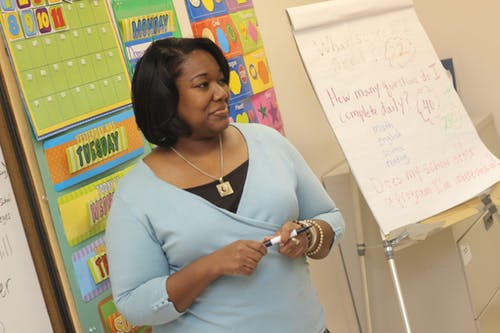The next generation of leaders, intellectuals, and innovators is nurtured in primary school. Preparing young brains and using that information to create instructional strategies to keep kids interested in the curriculum topics is a problem for primary school teachers. To satisfy set educational requirements, primary school teachers must give standardised instruction. People who provide primary education can easily see the students as unique people. Early education is the finest time to learn about a supportive and motivating atmosphere that fosters individuality while emphasising the need for teamwork in achieving both individual and group goals. Primary education is thought to be the starting point for subsequent intellectual development. The humanities are taught in the curriculum to acquaint the child with the world of humans. Moral education is a crucial part of the curriculum to instil a moral sense and a good outlook in kids from a young age. Early grades of a child’s education provide them with a thoughtful boost.

The main goals of primary education are to instil in children the ability to think critically, to achieve high levels of living, to meet the difficulties of technological innovation, and to enhance citizenship and fundamental values. Providers of primary education must create a good and secure environment for learning. The goal of sunshine coast primary schools is to give students the chance to interact with a stable team. The ability to make friends in elementary school helps students strengthen their communication abilities as they go to school. Demonstrating those young children who are not intellectually strong and who have delayed perception is another objective of early education. Smaller categories and a wide range of disciplines are included in primary education. Students may be impacted positively or badly during their primary education. A child’s elementary education determines their entire destiny. Your child’s self-confidence will increase as a result of their primary education, which will also give them the skills they need for long-term success in our cutthroat society. When children who did not obtain the fundamental education in their formative years are taught counting, the alphabet, colours, and shapes, they lag far behind those who had already mastered the fundamental knowledge of everything.
Before entering primary school, young children should spend some time interacting with other kids, especially those from diverse countries and backgrounds. It is impossible to exaggerate the value of group activities. Children learn to respect others, distinguish between right and wrong, play together, understand the value of sharing, resolve conflicts, obey directions, and express their ideas through group contact. It has been demonstrated that young children who attend a preschool that provides a good and loving atmosphere are more stable than those who do not and that this fosters young achievers who are more self-assured and independent. Children can develop a sense of self and learn about themselves in the safe, joyful, and healthy environment provided by early education.

A child’s basic education has a direct impact on their ability to communicate and read. A child’s communication abilities typically develop between the ages of three and five, which is why elementary school is crucial to a child’s entire development. The reading and speech skills of young children who attend preschool are significantly better than those of their peers. The benefits of elementary education extend beyond the individual to the nation as a whole. It shapes kids’ life by encouraging their capacity for making choices. A nation does not experience many losses when its population are educated because of their creativity and ability.





